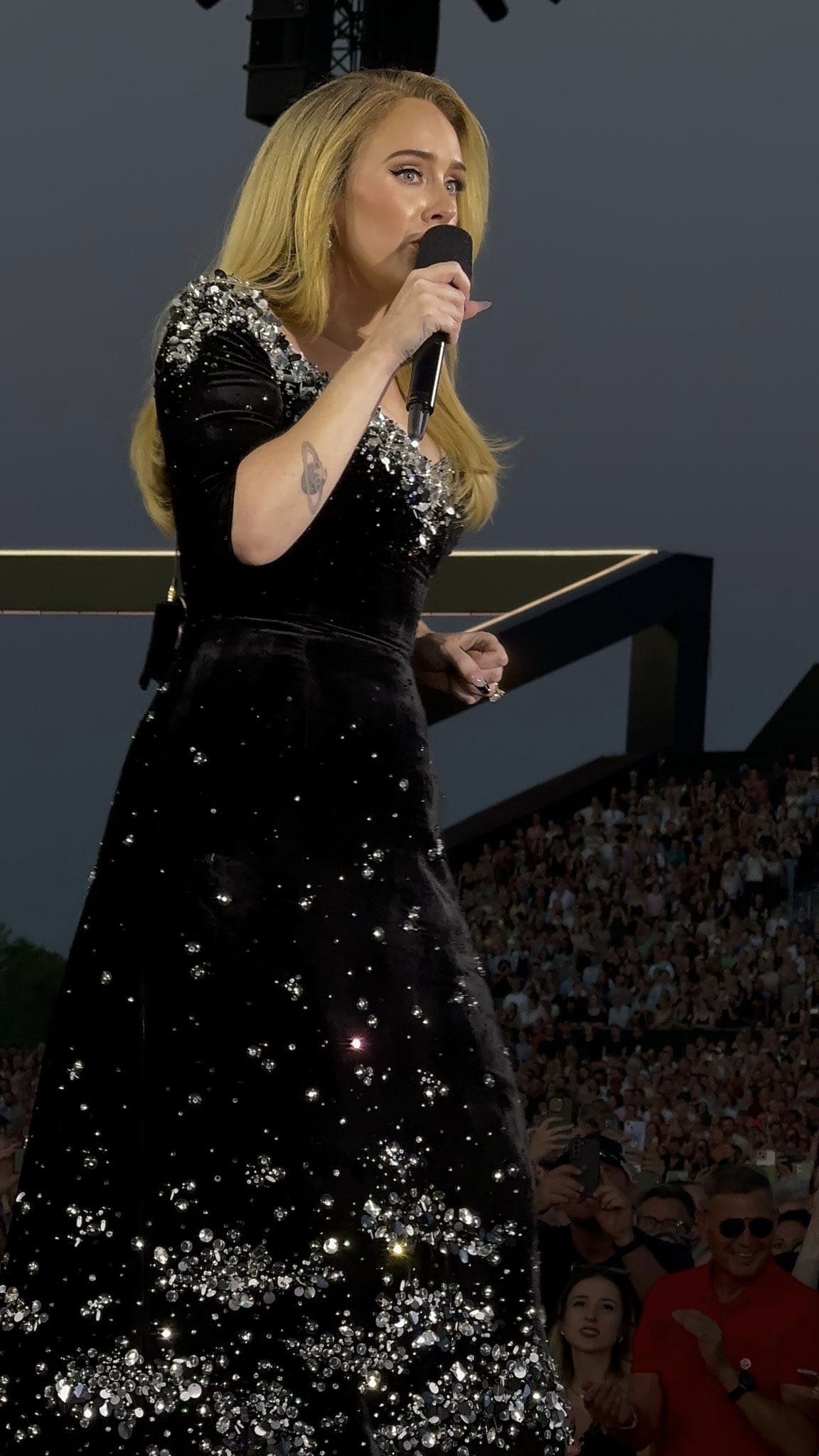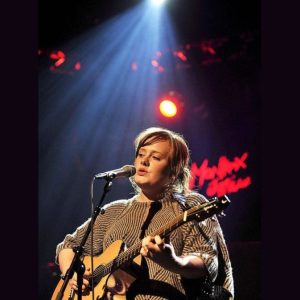Adele halted her concert in Munich this weekend to share her views on the Olympic Games controversy that has got everybody talking.
Australian breakdancer Raygun, real name Rachael Gunn, has gone viral after her performance fell flat in Paris, scoring a miserable zero in the inaugural women’s breaking competition in Paris.
The 36-year-old university lecturer has been ruthlessly ridiculed online and music superstar Adele brought her concert in Germany to a halt to reveal ‘it’s all me and my friends have been talking about’.
‘I am not saying anything, but I think it’s the best thing that has happened at the Olympics for the entire time,’ Adele told her fans.
‘Did anyone see the breakdancing lady?
‘Now I didn’t even know breakdancing was an Olympic sport these days. That is f***ing fantastic. I really really do.
‘Aaron my percussionist is p***ing himself laughing just thinking about it.’
Adele went on to reveal she is unsure whether Raygun was a serious entrant into the competition, with many fans comparing her moves to that of Mr Gee from Aussie comedy Summer Heights High.
Adele stopped her concert in Munich on Saturday to discuss Olympic star Raygun

The Australian breakdancer has gone viral for her quirky routine at the Olympic Games
Australian breaker Rachael Gunn performs at dance showcase in Paris
‘I can’t work out if it was a joke but either way it has made me very very happy and me and my friends have been s***ing ourselves laughing for nearly 24 hours.
‘I just wanted to know if you have seen it. If you haven’t seen it please leave the show and google it because it is LOLZ.
‘It is so f***ing funny and is my favourite thing that has happened in the Olympics this whole whole time.’
Raygun has kept a relatively low profile in the wake of her embarrassing performance, but did make a statement on social media in the midst of the barrage of comments.
‘What I wanted to do was come out here and do something new and different and creative — that’s my strength, my creativity,’ she said.
‘I was never going to beat these girls on what they do best, the dynamic and the power moves, so I wanted to move differently, be artistic and creative because how many chances do you get that in a lifetime to do that on an international stage.
‘I was always the underdog and wanted to make my mark in a different way.’
While Raygun has been mocked online, others have leapt to her defence and credited the 36-year-old for putting her best foot forward, despite things not going according to plan.
‘Raygun had a crack, good on her, and a big shout out to her,’ Australian prime minister Anthony Albanese told reporters in Adelaide on Sunday.
‘That is in the Australian tradition of people having a go. She’s had a go representing our country, and that’s a good thing.
Adele said that the viral moment was the ‘best thing’ to happen at the Games in Paris
Raygun, a 36-year-old university lecturer, scored zero points in the inaugural competition
‘Whether they’ve won gold medals or just done their best, that’s all we asked for. It’s the participating that is really important.’
Breakdancing has been dropped from the program for the 2028 Los Angeles Olympics, with no guarantee it will return at Brisbane in 2032 or beyond.
Victorian Premier Jacinta Allan said she had enjoyed watching the sport and suggested Raygun was a champion already as someone chosen to represent their nation on the world stage.
‘To quote Taylor (Swift), let the haters hate and let’s just get on celebrate our Olympians’ success,’ she said in Melbourne.
Chef de mission Anna Meares was similarly supportive of Gunn, condemning comments from ‘trolls and keyboard warriors’.
‘I love her character and I feel very disappointed for her that she has come under the attack that she has,’ she said.
Gunn lost all three of her round-robin battles by a combined score of 54-0 and admitted post-event that she couldn’t compete athletically with the tricks and spins of her younger opponents.
Gunn has published a doctoral thesis entitled ‘Deterritorializing Gender in Sydney’s Breakdancing Scene: A B-girl’s Experience of B-boying’.
The thesis questioned why so few female participants were part of the male-dominated scene but spoke of the sport as a ‘space that embraces difference’.





